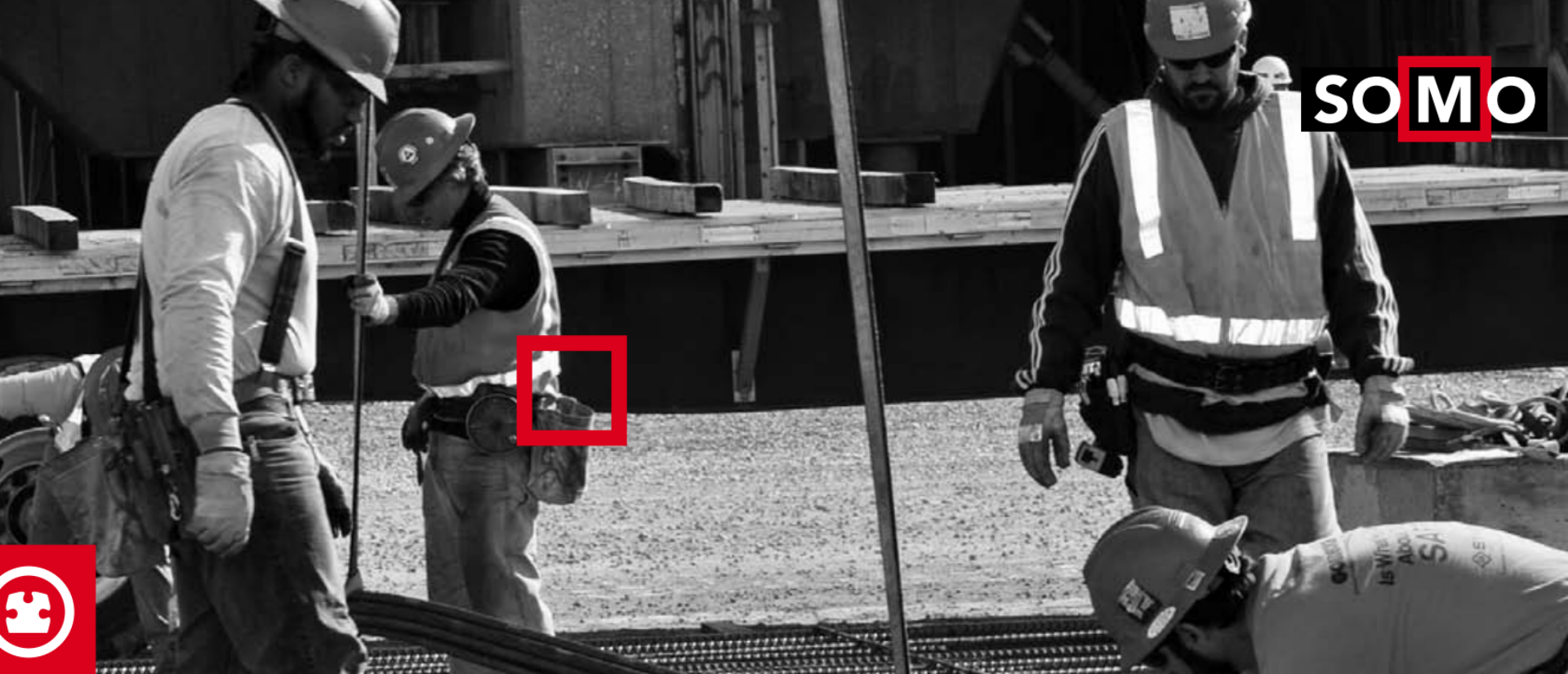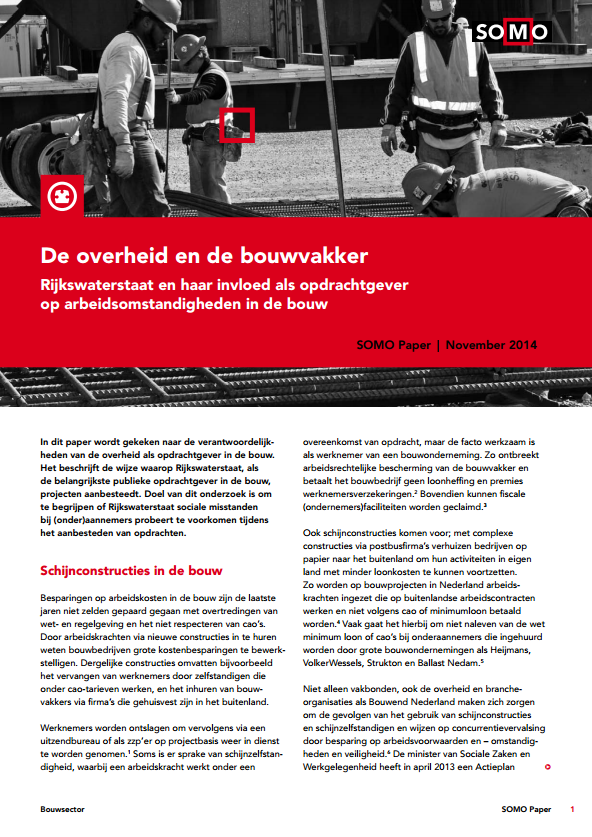
Social Risks at Government Construction Projects
The Dutch Department of Waterways and Public Works, Rijkswaterstaat, has thus far taken very few steps to avert social abuses on its construction sites. This is according to SOMO’s latest research report, which was commissioned by FNV Bouw, a Dutch trade union specialising in construction.
Social risks at government construction projects
As a major construction project client, Rijkswaterstaat has in the past been repeatedly confronted with violations of the law and exploitation of construction workers on its construction sites, such as on the recent work on the A2 and A4 motorways. SOMO discovered that Rijkswaterstaat has thus far taken almost no steps to prevent these problems on future projects.
To learn more about how labour and responsible public procurement play a role in the awarding of contracts to construction companies, SOMO engaged in numerous conversations with Rijkswaterstaat, and the large construction companies VolkerWessels and Heijmans. The results of these talks show that the workers’ terms of employment are not included in tender procedures and contract negotiations. It also appears that Rijkswaterstaat is unaware of which subcontractors are operating on its construction projects.
“We know for a fact that construction workers’ terms of employment regularly leave a lot to be desired on the sites of these large construction projects. We also know that the risk of abuse is often highest among the subcontractors, who try to save on labour costs and often do not comply with laws and regulations covered under the collective labour agreement”, SOMO researcher Fleur Scheele points out. “It is thus very striking that the government, as a major client of these contractors and subcontractors, has no clear policy in place to eliminate these abuses.”
Although international standards such as the UN Guiding Principles on Business and Human Rights require Rijkswaterstaat to conduct due diligence into the social risks at its construction sites and to actively take steps to alleviate these risks, this is currently not the case. And despite the fact that Dutch law provides an opportunity for public clients to impose social conditions on contractors and to encourage and reward a construction company’s positive social policies, Rijkswaterstaat has thus far failed to make use of these options.
The paper ‘De overheid en de bouwvakker‘ is only available in Dutch.
Do you need more information?
-

Gisela ten Kate
Coordinator MVO Platform
Related content
-
Social risks at government construction projects Published on:
 Gisela ten KatePosted in category:Publication
Gisela ten KatePosted in category:Publication Gisela ten Kate
Gisela ten Kate
-
 CSDDD Datahub reveals law covers fewer than 3,400 EU-based corporate groupsPosted in category:News
CSDDD Datahub reveals law covers fewer than 3,400 EU-based corporate groupsPosted in category:News David Ollivier de LethPublished on:
David Ollivier de LethPublished on: -
 Additional evidence filed against Booking.com for profiting from illegal settlementsPosted in category:News
Additional evidence filed against Booking.com for profiting from illegal settlementsPosted in category:News Lydia de LeeuwPublished on:
Lydia de LeeuwPublished on:

